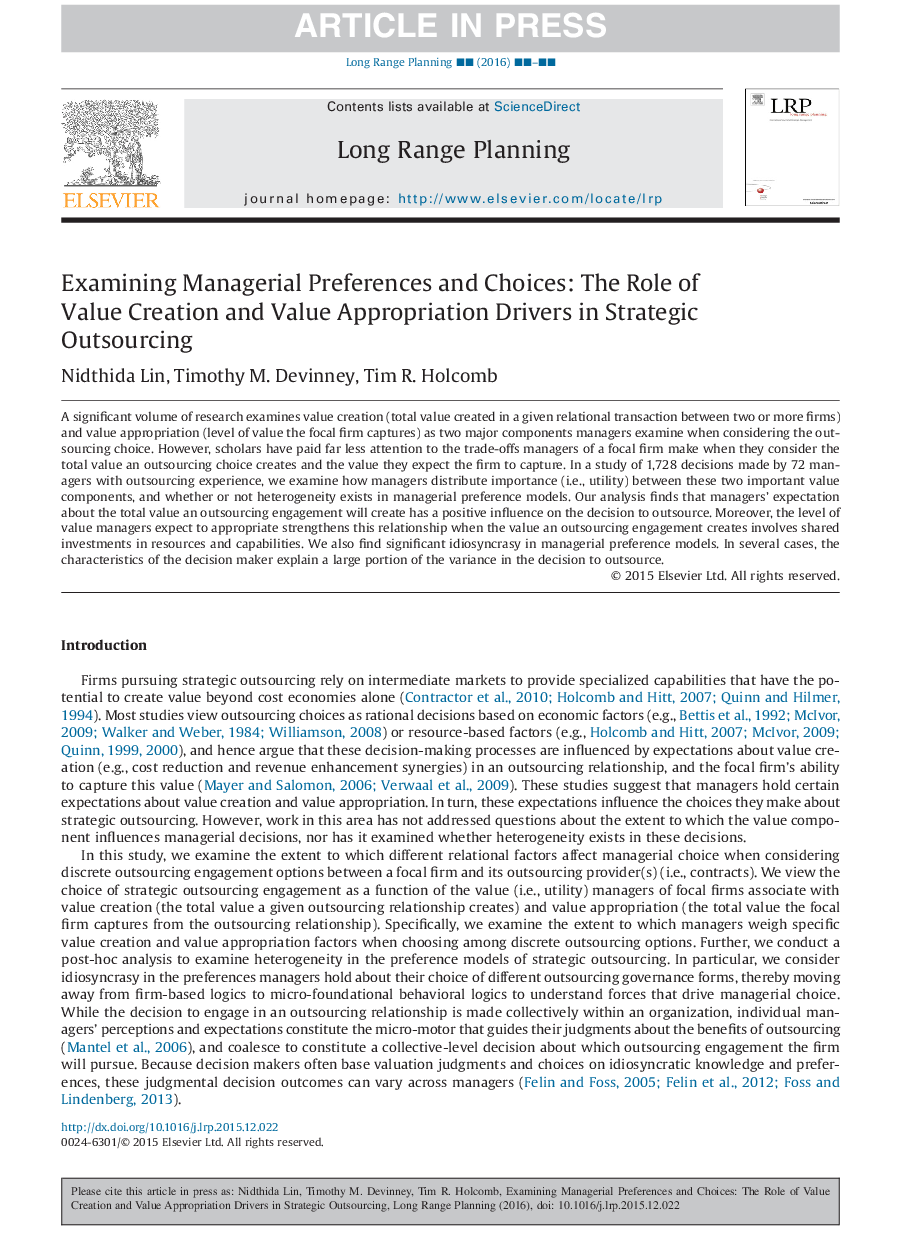| Article ID | Journal | Published Year | Pages | File Type |
|---|---|---|---|---|
| 5110315 | Long Range Planning | 2016 | 17 Pages |
Abstract
A significant volume of research examines value creation (total value created in a given relational transaction between two or more firms) and value appropriation (level of value the focal firm captures) as two major components managers examine when considering the outsourcing choice. However, scholars have paid far less attention to the trade-offs managers of a focal firm make when they consider the total value an outsourcing choice creates and the value they expect the firm to capture. In a study of 1,728 decisions made by 72 managers with outsourcing experience, we examine how managers distribute importance (i.e., utility) between these two important value components, and whether or not heterogeneity exists in managerial preference models. Our analysis finds that managers' expectation about the total value an outsourcing engagement will create has a positive influence on the decision to outsource. Moreover, the level of value managers expect to appropriate strengthens this relationship when the value an outsourcing engagement creates involves shared investments in resources and capabilities. We also find significant idiosyncrasy in managerial preference models. In several cases, the characteristics of the decision maker explain a large portion of the variance in the decision to outsource.
Related Topics
Social Sciences and Humanities
Business, Management and Accounting
Business and International Management
Authors
Nidthida Lin, Timothy M. Devinney, Tim R. Holcomb,
